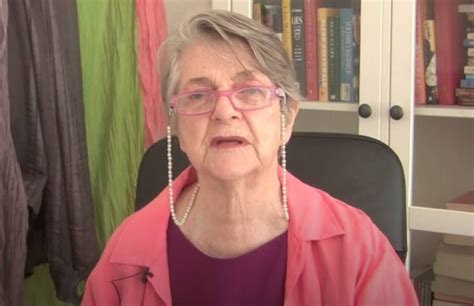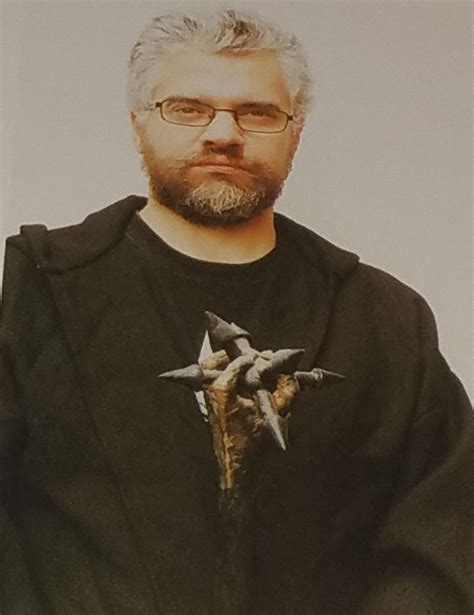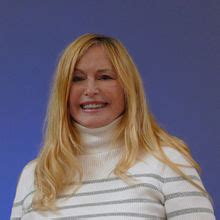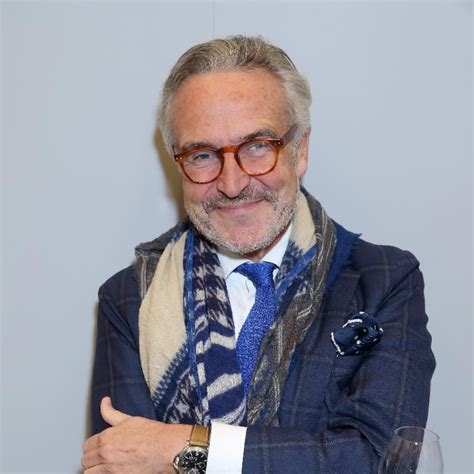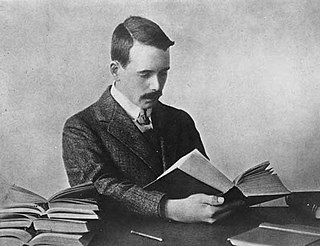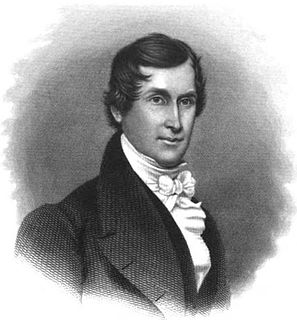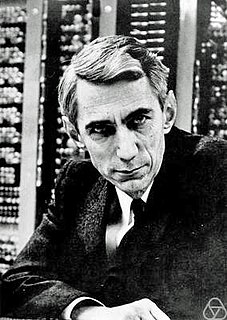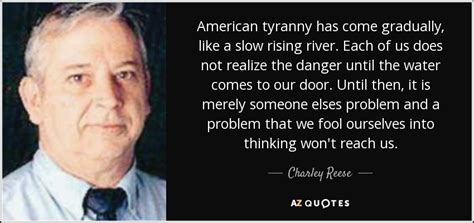Top 931 Quantum Mechanics Quotes & Sayings - Page 16
Explore popular Quantum Mechanics quotes.
Last updated on April 16, 2025.
As is well known the principle of virtual velocities transforms all statics into a mathematical assignment, and by D'Alembert's principle for dynamics, the latter is again reduced to statics. Although it is is very much in order that in gradual training of science and in the instruction of the individual the easier precedes the more difficult, the simple precedes the more complicated, the special precedes the general, yet the min, once it has arrived at the higher standpoint, demands the reverse process whereby all statics appears only as a very special case of mechanics.
Physicists often quote from T. H. White's epic novel The Once and Future King, where a society of ants declares, "Everything not forbidden is compulsory." In other words, if there isn't a basic principle of physics forbidding time travel, then time travel is necessarily a physical possibility. (The reason for this is the uncertainty principle. Unless something is forbidden, quantum effects and fluctuations will eventually make it possible if we wait long enough. Thus, unless there is a law forbidding it, it will eventually occur.)
Man had in the beginning no power of analysis or synthesis approaching that of the spider, or even of the honey-bee; he had acute sensibility to the higher forces. Fire taught him secrets that no other animal could learn; running water probably taught him even more, especially in his first lessons of mechanics; the animals helped to educate him, trusting themselves into his hands merely for the sake of their food, and carrying his burdens or supplying his clothing; the grasses and grains were academies of study.
There may be rhetoric about the socially constructed nature of Western science, but wherever it matters, there is no alternative. There are no specifically Hindu or Taoist designs for mobile phones, faxes or televisions. There are no satellites based on feminist alternatives to quantum theory. Even that great public sceptic about the value of science, Prince Charles, never flies a helicopter burning homeopathically diluted petrol, that is, water with only a memory of benzine molecules, maintained by a schedule derived from reading tea leaves, and navigated by a crystal ball.
Doing is a quantum leap from imagining. Thinking about swimming isn't much like actually getting in the water. Actually getting in the water can take your breath away. The defense force inside of us wants us to be cautious, to stay away from anything as intense as a new kind of action. Its job is to protect us, and it categorically avoids anything resembling danger. But it's often wrong. Anything worth doing is worth doing too soon.
They were not friends, Comdrade Pillai and Inspector Thomas Matthew, and they didn't trust each other. But they understood each other perfectly. They were both men whom childhood had abandoned without a trace. Men without curiosity. Without doubt. Both in their own way truly, terrifyingly, adult. They looked out into the world and never wondered how it worked, because they knew. They worked it. They were mechanics who serviced different parts of the same machine.
Quantum theory thus reveals a basic oneness of the universe. It shows that we cannot decompose the world into independently existing smallest units. As we penetrate into matter, nature does not show us any isolated "building blocks," but rather appears as a complicated web of relations between the various parts of the whole. These relations always include the observer in an essential way. The human observer constitute the final link in the chain of observational processes, and the properties of any atomic object can be understood only in terms of the object's interaction with the observer.
Henceforth, whilst there are a great many theories and models proposed as to how, or why, magic works (based on subtle energies, animal magnetism, psychological concepts, quantum theory, mathematics or the so-called anthropomorphic principle) it is not a case that one of them is more 'true' than others, but a case of which theory or model you choose to believe in, or which theory you find most attractive. Indeed, from a Chaos Magic perspective, you can selectively believe that a particular theory or model of magical action is true only for the duration of a particular ritual or phase of work.
Over time, I started becoming more aware of the vastness and complexity of the universe, which led me away from any sort of conventional Christianity. I still love the teachings of Christ, but I also believe that the human condition prevents us from having any true objective knowledge of the universe. All human belief systems are inherently flawed. If I had to label myself now, I'd call myself a Taoist-Christian-agnostic quantum mechanic. Also, there's nothing in the actual Bible that limits a Christian in their interest in science. Anti-science is a function of ignorant fundamentalism.
For at least twenty minutes she handed out the story. The youngest kids were soothed by her voice, and everyone else saw visions of the whistler running from the scene. Liesel did not. The book thief saw only the mechanics of the words--their bodies stranded on the paper, beaten down for her to walk on. Somewhere, too, in the gaps between a period and the next capital letter, there was also Max. She remembered reading to him when he was sick. It he in the basement? she wondered. Or is he stealing a glimpse of the sky again?
Just the way sound creates visible waves as it travels through a droplet of water, our "belief waves" ripple through the quantum fabric of the universe to become our bodies and the healing, abundance, and peace-or disease, lack, and suffering-that we experience in life. And just the way we can tune a sound to change its patterns, we can tune our beliefs to preserve or destroy all that we cherish, including life itself.
Almost everything we'll ever do in life that is really powerful, that really produces a result in our lives, that quantum-leaps us to a new level . . . requires us to do something uncomfortable. It takes risks to achieve. It's often scary. It requires something you didn't know before or a skill you didn't have before. But in the end, it's worth it. As former Congressman Ed Forman says, 'Winners are those people who make a habit of doing things losers are uncomfortable doing.' Make today your day to start that uncomfortable new habit.
The playfulness that I talk about comes very slowly. You cannot just jump out of your seriousness which you have accumulated for lives. Now it has a force of its own. It is not a simple matter to relax; it is one of the most complex phenomena possible, because all that we are taught is tension, anxiety, anguish. Seriousness is the very core the society is built around. Playfulness is for small children, not for grown-up people. And I am teaching you to be children again, to be playful again. It is a quantum leap, a jump...but it takes time to understand.
In general, I don't like game mechanics, I mean it's the idea you do the same things through different levels. I think, in my mind, it's an ideas I don't really like because I love to do different things and like to see the story moving on and I like to do different things and different scenes, not do the same thing over and over again. If it involves violence at some point fine, if it makes sense in the context. But violence for the sake of violence, it doesn't mean anything to me anymore.
Through experiments over the past few decades physicists have discovered matter to be completely mutable into other particles or energy and vice-versa and on a subatomic level, matter does not exist with certainty in definite places, but rather shows 'tendencies' to exist. Quantum physics is beginning to realise that the Universe appears to be a dynamic web of interconnected and inseparable energy patterns. If the universe is indeed composed of such a web, there is logically no such thing as a part. This implies we are not separated parts of a whole but rather we are the Whole.
It is the fragrant lack of practicality that makes high-heeled shoes so fascinating: in terms of static mechanics they induce a sort of insecurity which some find titillating. If a woman wears a high-heeled shoe it changes the apparent musculature of the leg so that you get an effect of twanging sinew, of tension needing to be released. Her bottom sticks out like an offering. At the same time, the lofty perch is an expression of vulnerability, she is effectively hobbled and unable to escape. There is something arousing about this declaration that she is prepared to sacrifice function for form.
We have now got what seems to be definite proof that an X ray which spreads out in a spherical form from a source as a wave through the aether can when it meets an atom collect up all its energy from all round and concentrate it on the atom. It is as if when a circular wave on water met an obstacle, the wave were all suddenly to travel round the circle and disappear all round and concentrate its energy on attacking the obstacle. Mechanically of course this is absurd, but mechanics have in this direction been for some time a broken reed.
So many things were testing his faith. There was the Bible, of course, but the Bible was a book, and so were Bleak House, Treasure Island, Ethan Frome and The Last of the Mohicans. Did it then seem probable, as he had once overheard Dunbar ask, that the answers to riddles of creation would be supplied by people too ignorant to understand the mechanics of rainfall? Had Almighty God, in all His infinite wisdom, really been afraid that men six thousand years ago would succeed in building a tower to heaven?
The valuable properties of this cement depend in a great measure on the mode of preparing it for use. The mixing should therefore be conducted with care in order to form a perfect union of the powdered cement, sand and water. This can be best accomplished by the use of the New England corn hoe on a board floor or by beating with a hand stamper; not much labour is required if properly applied. Mechanics can judge when the mixture is perfect by the appearance of the mortar, which, when properly prepared, very much resembles putty.
A successful unification of quantum theory and relativity would necessarily be a theory of the universe as a whole. It would tell us, as Aristotle and Newton did before, what space and time are, what the cosmos is, what things are made of, and what kind of laws those things obey. Such a theory will bring about a radical shift - a revolution - in our understanding of what nature is. It must also have wide repercussions, and will likely bring about, or contribute to, a shift in our understanding of ourselves and our relationship to the rest of the universe.
Now let's take up the minorities in our civilisation, shall we? Bigger the population, the more minorities. Don't step on the toes of the dog-lovers, the cat-lovers, doctors, lawyers, merchants, chiefs, Mormons, Baptists, Unitarians, second-generation Chinese, Swedes, Italians, Germans, Texans, Brooklynites, Irishmen, people from Oregon or Mexico. The people in this book, this play, this TV serial are not meant to represent any actual painters, cartographers, mechanics anywhere. The bigger your market, Montag, the less you handle controversy, remember that!
My greatest concern was what to call it. I thought of calling it 'information,' but the word was overly used, so I decided to call it 'uncertainty.' When I discussed it with John von Neumann, he had a better idea. Von Neumann told me, 'You should call it entropy, for two reasons. In the first place your uncertainty function has been used in statistical mechanics under that name, so it already has a name. In the second place, and more important, no one really knows what entropy really is, so in a debate you will always have the advantage.'
This act is as horrible as killing a cancer cell. It must be done for the sake of the future of the whole. So be it: be prepared for the selection process which is now beginning. We, the elders, have been patiently waiting until the very last moment before the quantum transformation, to take action to cut out this corrupted and corrupting element in the body of humanity. It is like watching a cancer grow; something must be done before the whole body is destroyed... The destructive one fourth must be eliminated from the social body.
I have tried to read philosophers of all ages and have found many illuminating ideas but no steady progress toward deeper knowledge and understanding. Science, however, gives me the feeling of steady progress: I am convinced that theoretical physics is actual philosophy. It has revolutionized fundamental concepts, e.g., about space and time (relativity), about causality (quantum theory), and about substance and matter (atomistics), and it has taught us new methods of thinking (complementarity) which are applicable far beyond physics.
Sometimes the public says, 'What's in it for Numero Uno? Am I going to get better television reception? Am I going to get better Internet reception?' Well, in some sense, yeah. ... All the wonders of quantum physics were learned basically from looking at atom-smasher technology. ... But let me let you in on a secret: We physicists are not driven to do this because of better color television. ... That's a spin-off. We do this because we want to understand our role and our place in the universe.
"The Universe repeats itself, with the possible exception of history." Of all earthly studies history is the only one that does not repeat itself. ... Astronomy repeats itself; botany repeats itself; trigonometry repeats itself; mechanics repeats itself; compound long division repeats itself. Every sum if worked out in the same way at any time will bring out the same answer. ... A great many moderns say that history is a science; if so it occupies a solitary and splendid elevation among the sciences; it is the only science the conclusions of which are always wrong.
I have an abiding interest in how ordinary people produce knowledge, and what it means for individuals to know the world. I thought I'd be a theoretical physicist because I love physicists' views of the world - I find general relativity and quantum theory thrilling - but I have always felt uneasy with the idea of an Ultimate Truth. One of the functions of science is to help us instrumentally; it helps us to build things like microchips and GPS satellites. But another function of science in the modern world is to help us feel "at home in the universe".
The words are strung together, with their own special grammar-the laws of quantum theory-to form sentences, which are molecules. Soon we have books, entire libraries, made out of molecular "sentences." The universe is like a library in which the words are atoms. Just look at what has been written with these hundred words! Our own bodies are books in that library, specified by the organization of molecules-but the universe and literature are organizations of identical, interchangeable objects; they are information systems.
Isn't it true that whatever isn't determined by our genes must be determined by our environment? What else is there? There's Nature and there's Nurture. Is there also some X, some further contributor to what we are? There's Chance. Luck. This extra ingredient is important but doesn't have to come from the quantum bowels of our atoms or from some distant star. It is all around us in the causeless coin-flipping of our noisy world, automatically filling in the gaps of specification left unfixed by our genes, and unfixed by salient causes in our environment.
Unless they can pass the same test that immigrants must pass to become citizens, people shouldnt be allowed to vote. The idea that there is some public benefit in ignoramuses and morons pulling levers next to names on a ballot is one of the evil myths of post-modern America. The purpose of voting, in our country, is to select men and women with the competence and integrity to operate the mechanics of government fixed by our Constitution. For this process to have any public benefit requires that the choices be made on an intelligent, knowledgeable and reasoned basis.




